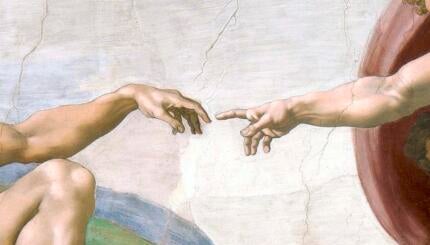For some Jews, the idea of celebrating New Year’s on December 31 makes them feel uncomfortable. They see the holiday as part of secular tradition and therefore not “Jewish.” Some choose not to participate because they see it as a betrayal of Jewish tradition.
Why is commemorating an American custom viewed so suspiciously? Are we afraid that it will somehow make Jewish traditions seem less compelling, or are we so obsessed with our own uniqueness that we fail to see our connection to the wider world?
If our purpose is just to be different, then it’s not worth it.
How to Celebrate
The question is not whether we should or shouldn’t celebrate. But how should we do it? Is there a way to mark the holiday Jewishly? There are Jewish insights that we can bring to the occasion that would make it more meaningful.
With your help, My Jewish Learning can provide endless opportunities for learning, connection and discovery.
New Year’s marks a time when people everywhere celebrate the possibility of building a better tomorrow. It symbolizes the human desire to demarcate the past from the future, the old from the new. But what if we really understood that our words — our resolutions and commitments — could create a new beginning? What if we really believed that our vows had the power to help us get past the past?
There is a deep human desire to be able to start again, not to be imprisoned by the past. We need to feel hope for new possibilities and see that our future is not governed entirely by our history. It’s no surprise that the images of the Grim Reaper and Father Time look alike and that the symbol for the New Year is a baby. We cut down some of the old and make space for something new.
Jewish Ideals
These are very much “Jewish” ideas as well. Jewish tradition celebrates the ability to start over throughout the year. In Jewish life every day, every week, and at many other times, we are given the chance to begin again. To integrate another celebration is very much in keeping with our tradition.
In daily morning prayers, Jews thank God for renewing the world. Every Shabbat we recall the first moment of creation, and by doing so, give ourselves the chance to start over. At Rosh Hashanah, Jews everywhere celebrate the birthday of the world, and even in the Mishna, the code of law, we recognize multiple Rosh Hashanahs (New Year’s), so to commemorate an additional one is not foreign to Jewish practice.
Tips
Here are some suggestions for making New Year’s more Jewish:
– Jewish life teaches about the importance of words. How could this lesson be applied this New Year’s?
– Jewish tradition has taken the transformative power of vows seriously for thousands of years. What would it mean to take your New Year’s resolutions so seriously that they could transform your life?
– Jewish wisdom offers a sense of balance for healthy living. Can we celebrate the New Year without overindulging?
Most traditional religious groups have shied away from celebrating at New Year’s, so the celebrations have no wisdom to guide them. Those that have offered guidance often have done so in a manner that feels defensive. But if we can find a way to use our traditions to help bridge the divide, we can create richer, more meaningful ways to live.



